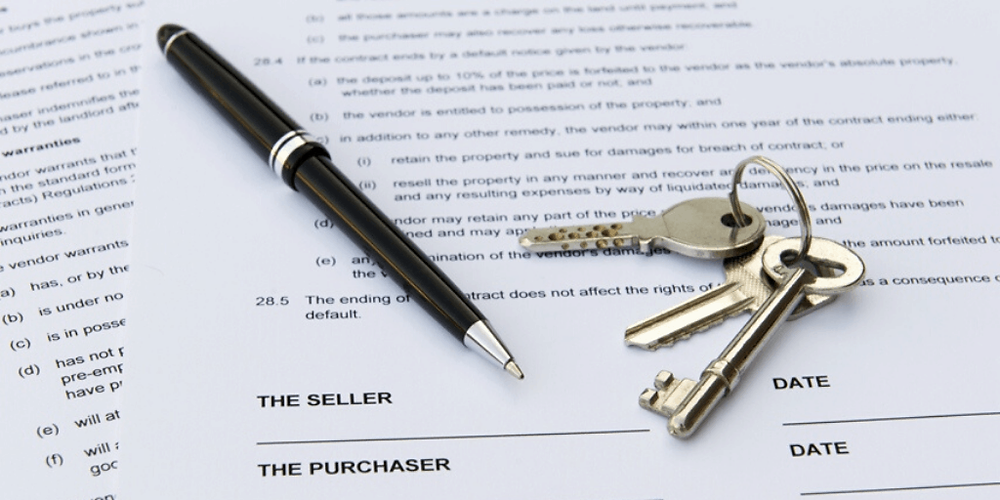If you own a home in Nevada or plan to buy one, understanding the “chain of title” is essential. Chain of title refers to the public record of all ownership transfers and legal interests tied to a property. It shows who currently owns the property, who owned it before, and whether any liens or loans are recorded against it. When you buy a home, the deed transferring ownership to you becomes part of this chain. Lenders also record a deed of trust to protect their interest. This recorded history matters when you sell, as a clear chain of title ensures the buyer can legally take ownership without risk of hidden claims or unresolved debts.
What is Chain of Title?
The easiest way to discuss chain of title is to talk about your own home, for those homeowners out there. It’s probably easiest to explain chain of title when we’re talking about our personal residence. The chain of title is essentially what is publicly recorded on your property. It’s everything that’s on record for your property. To give you an idea of this, if you are purchasing a new home then there is not going to be much on the chain of title because, of course, they just built the home. There will be a deed deeding it to the developer, then when you purchase, it will be via a deed. That deed will be recorded in the chain of title. The reason it’s done is so that everybody knows you own the property and you’re in the chain of title, you’re on the property records, people can look you up. That is one reason that some people use LLCs and trusts to own property is for privacy purposes because they don’t want their own name on the chain of title for people to easily find them. That’s just something to consider if that’s a concern of yours.
How a Mortgage Affects the Chain of Title
With chain of title documents, typically if you’re talking about your own home, then most people purchase a home with a mortgage, they need to get a loan in order to purchase the home. In Nevada, there are always things called deeds of trust that are recorded against the property and the chain of title by your lender. That is their secured interest in the property.
They’re telling the world that you have a loan on this property and they have a secured interest. The reason they do this is because when it comes time to sell the property, when you decide to sell your property and you open up escrow, the title company is going to do a title search to see if there are any liens or loans on your property. What’s going to come up is your mortgage, so when you sell the property, they know they have to pay off that mortgage before title’s clear to sell to the next person.
What Gets Recorded When You Buy a Home
That’s how the lenders secure their interest is they record something called a deed of trust against you on the property, basically against the property. When you purchase a home automatically there’s going to be two new recorded documents in the chain of title. One is going to be the deed deeding it to you from whoever you’re purchasing it from, and then the other is going to be the deed of trust from whatever bank lender you use. They’re going to record a deed of trust that you sign, promising to pay them back. Whatever money you were loaned to purchase the house, those things are all part of the chain of title and chain of title is important because when you go to sell the property, the new owner is going to want to make sure that you hold the title free and clear of all liens and any other interests in the property and that they’re buying the property directly from you and they’re assured that no one’s going to pop up later and claim an interest in the property.
Why Title Insurance Matters in Nevada
That’s where title insurance comes into play in Nevada. Whenever you buy and sell real property, escrow is opened. One of the reasons for opening escrow isn’t just to hold purchase funds, it’s also to conduct the title search in order to make sure there’s nothing on the chain of title so that the title company can issue an insurance policy when the sale is complete. The insurance policy is essentially insuring the property saying that the title is free and clear and you can purchase it so that if down the line the new owner or something, somebody pops up and says, “Hey, I have an interest in this property. Look at the chain of title I recorded something five years ago and I was never paid.” You potentially may be able to tender that claim to your insurance company that insured the title when you purchased it. That’s the purpose of title insurance.
Talk to a Nevada Real Estate Attorney
If you have any questions or you want to dig deeper, please contact our office. Visit our Website for more information. To schedule a complimentary, 15-minute phone consultation with our attorneys call (702) 850-7798, or click here to schedule your complimentary consultation.





